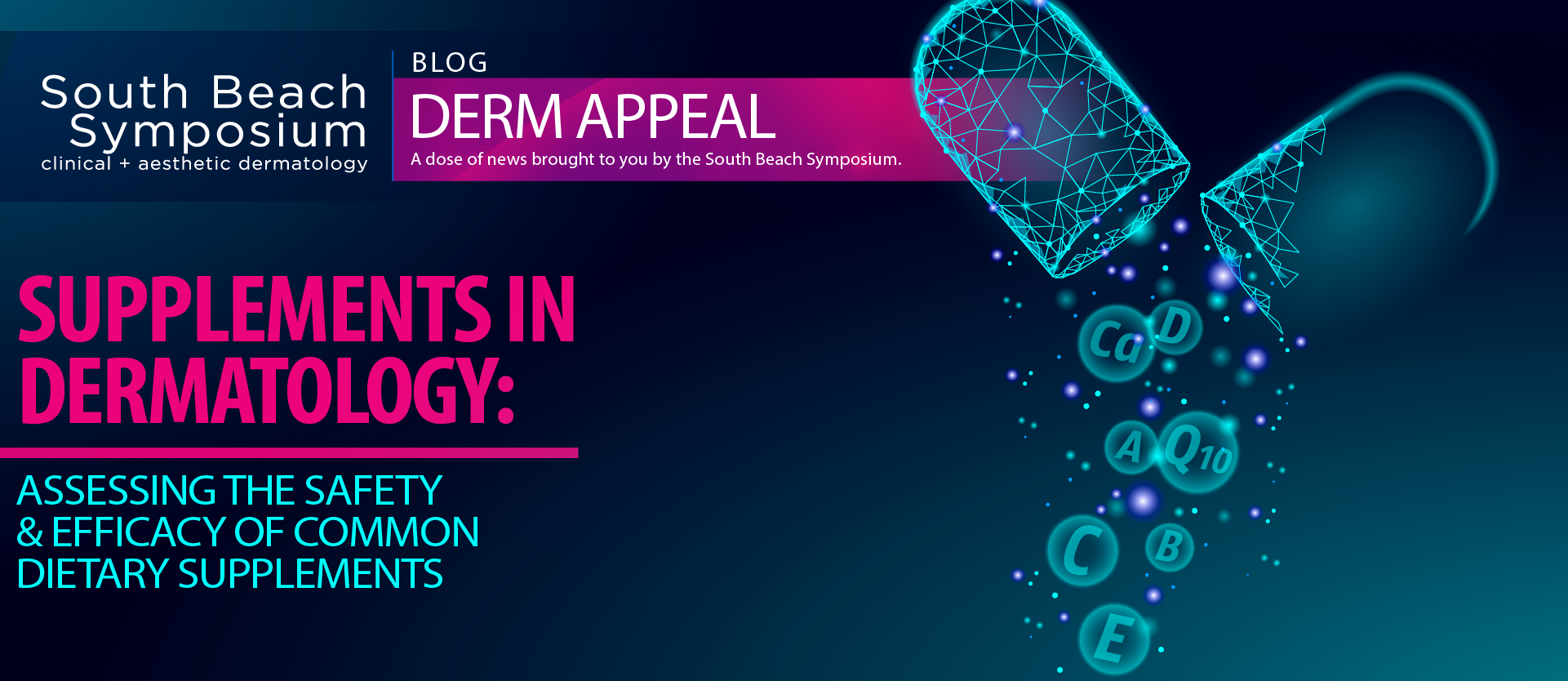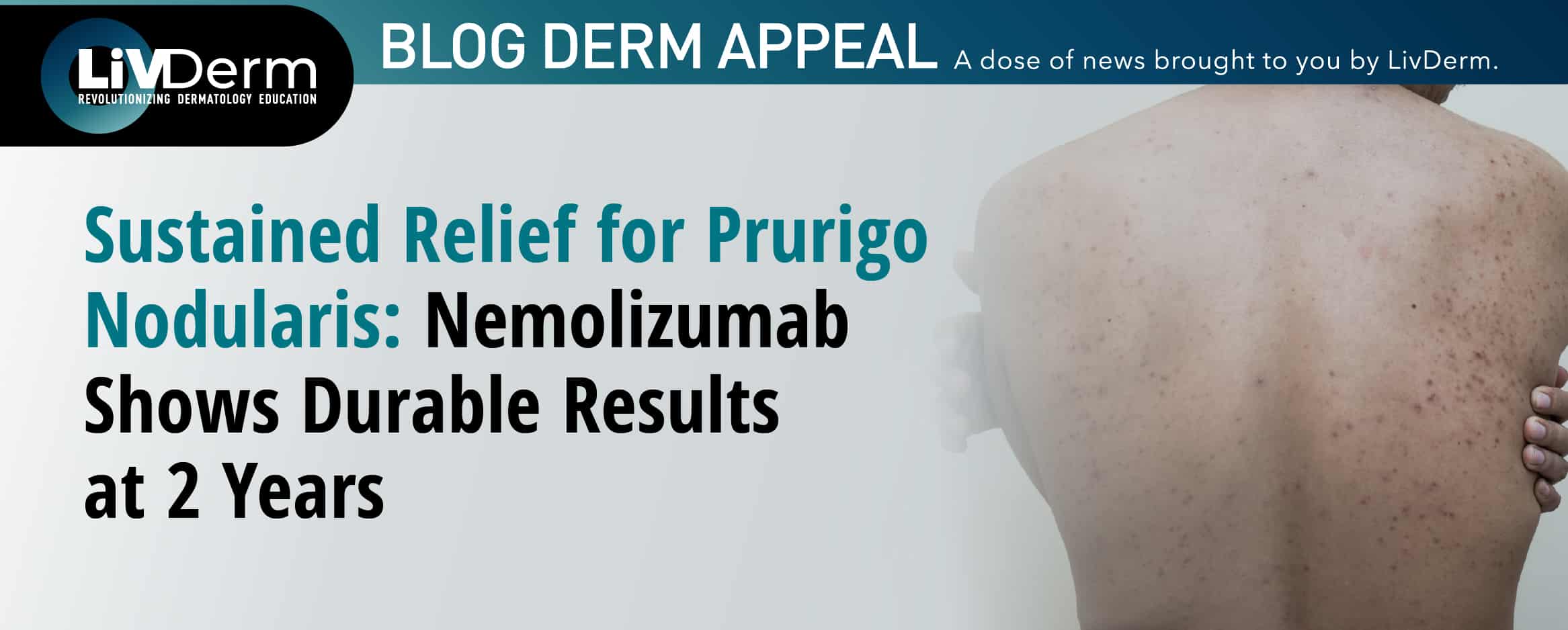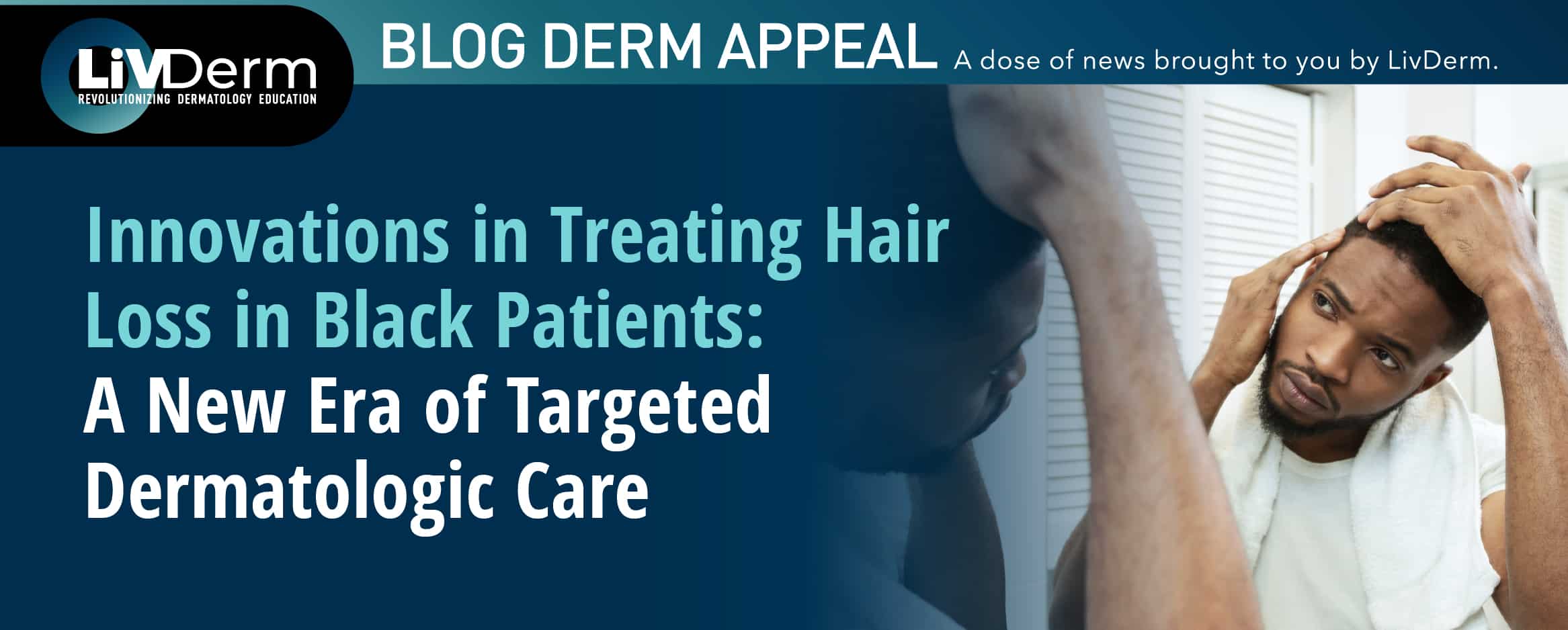Many over-the-counter supplements available to consumers today market themselves as beneficial for skin, hair, and nail health, including a growing number of peptide-infused products. Often, dermatologists prescribe zinc, biotin, vitamin D, and other compounds as supplements to treat a variety of disorders. Designated by the Food and Drug Administration as “supplements”, they rarely undergo rigorous evaluation or safety inspection; current literature suggests that there is a paucity of available evidence determining the safety and efficacy of these products.
Very few large-scale, randomized controlled trials exist for these OTC supplements, particularly biotin and polypodium. The lack of standardized dosing and standardized outcome measures across existing studies makes comparisons challenging, while the lack of adverse events reporting in the majority of studies limits the analysis of supplement safety. In a recent review published in the Journal of the American Academy of Dermatology , researchers aimed to assess the efficacy and safety of several dietary supplements prescribed in the dermatologic clinical setting.m
Potential Benefits of Dietary Supplements
Conducted by Katherine G. Thompson, BS and Noori Kim, MD, the review analyzed current evidence for the use of several dietary supplements in the treatment of common dermatologic disorders – they included zinc, biotin, vitamin D, nicotinamide, and polypodium products. Data from previously published studies of any design, including randomized controlled trials, cohort studies, and case reports, was included to determine the study outcomes of supplement efficacy and incidence of adverse events.
Evidence for the majority of supplements was limited, however, there were promising results supporting nicotinamide as an effective preventative method against nonmelanoma skin cancers. In a randomized control trial of patients with recent nonmelanoma skin cancers, subjects who received nicotinamide supplements reported significantly lower rates of new nonmelanoma skin cancers and actinic keratosis (AK) than those who received placebo. Furthermore, three other trials reported AK lesion reductions in patients receiving nicotinamide compared with placebo. However, long-term safety records were not available for nicotinamide supplementation although, toxicity was reported at doses above 3.5 grams per day.
Some evidence was found proving the potential benefit of vitamin D supplements as a preventative measure against melanoma risk and progression; data from in vitro trails implicate that the compound may work to protect keratinocytes against ultraviolet-induced apoptosis. Although, randomized controlled trials assessing vitamin D and melanoma risk yielded mixed results. Researchers concluded that while lower vitamin D levels may predict worse melanoma outcomes, regular vitamin D use was not correlated with decreased melanoma risk overall.
Finally, polypodium (PLE) supplementation prior to UV exposure was found to prevent UV-induced erythema and idiopathic photodermatoses in some individuals. Additionally, the supplement may prove effective at reducing AK lesions, however, further investigation is needed to determine these effects and appropriate dosage.
Need for Further Investigation
On the whole, researchers found that very few dermatologic supplements had undergone large-scale randomized clinical trials and thus, safety and efficacy data were limited. Across studies, researchers reported that current evidence was insufficient to recommend biotin or zinc supplements for dermatologic use. Conclusions as to the safety of any supplement were difficult to draw as few adverse events were recorded, while the lack of standardized dosing measures across trials prevented investigators from conducting any pooled statistical analyses.
The latest findings highlight the pressing need for increased research efforts aimed at further evaluating dietary supplements and their dermatologic applications. “Large-scale randomized controlled trials investigating safety and efficacy are needed prior to widespread incorporation of these oral supplements into the general practice of dermatology,” the study’s authors concluded. Specifically, further study is needed for zinc, biotin, vitamin D, and polypodium supplementation to conclusively determine whether prescribing these products to patients can be a valuable adjunctive therapy for dermatologic disorders.
















